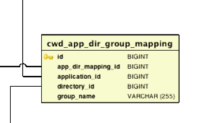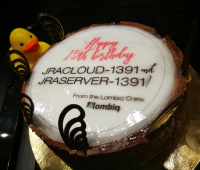-
Type:
Suggestion
-
Resolution: Unresolved
-
None
-
339
-
174
-
NOTE: This suggestion is for JIRA Server. Using JIRA Cloud? See the corresponding suggestion.
Original request description:
As a JIRA administrator I am responsible for managing a large installation with multiple users and groups. Given the dynamic nature of my environment it is very difficult for me to create the correct user group name which can be used for many projects later on. I need to be able to rename the user groups, to reflect the changes my organisation undergoes.
- is duplicated by
-
JRASERVER-61890 Renamed LDAP Group is Not Reflected in Permission Scheme
-
- Gathering Impact
-
-
JRASERVER-1132 Ability to modify Group NAme
- Closed
-
JRASERVER-2207 Rename groups
- Closed
-
JRASERVER-5460 Rename support of groups/users
- Closed
-
JRASERVER-8644 Add the possibility to rename a Group
- Closed
-
JRASERVER-9116 Group Browsing & Admin: <1> Add a new "group picker" popup (like the one for user acct picker) on all forms (search, issue create/edit, etc) and <2> Enable admins to rename an existing group
- Closed
-
JRASERVER-9748 Add ability to edit the "Group Name" under "Group Browser > Group Name" (this functionality currently not available)
- Closed
-
JRASERVER-59541 jira user and group administration
- Closed
- is incorporated by
-
JRASERVER-13297 SOAP Service Improvements - Especially with user management
- Closed
- is related to
-
CWD-4763 Inability for Crowd to detect renamed LDAP groups as Crowd does not track using its LDAP IDs yet
-
- Closed
-
-
JRASERVER-3494 The group name is used as foreign key instead of the group id
- Closed
-
JRASERVER-10100 Add ability to copy groups
- Closed
-
JRASERVER-11125 JIRA 4.0 Enterprise Requirements
- Closed
-
AX-1152 Bulk Add and Remove Users to and from Multiple Groups
- Gathering Interest
- relates to
-
AX-156 Renaming groups after creation.
- Closed
-
JRASERVER-1549 Ability to rename a user
- Closed
-
JRASERVER-36637 When deleting a group, I should be prompted to change the sharing information for dashboards and filters
- Closed
-
BSERV-3051 Ability to rename groups
- Gathering Interest
-
CWD-1599 Ability to rename groups
- Under Consideration
- was cloned as
-
JRASERVER-72769 Provide the ability to rename groups after creation
- Gathering Interest
- mentioned in
-
Page Loading...
-
Page Loading...
-
Page Loading...
-
Page Loading...
-
Page Loading...
-
Page Loading...
-
Page Loading...
-
Page Loading...
-
Page Loading...
-
Page Loading...
-
Page Loading...
-
Page Loading...
-
Page Loading...
-
Page Loading...
-
Page Loading...
-
Page Loading...
-
Page Loading...
-
Page Loading...
-
Page Loading...
-
Page Loading...
-
Page Loading...
-
Page Loading...
-
Page Loading...
-
Page Loading...
-
Page Loading...
-
Page Loading...
-
Page Loading...
-
Page Loading...
-
Page Loading...
-
Page Loading...
-
Page Loading...
-
Page Loading...
-
Page Loading...
-
Page Loading...
-
Page Loading...
-
Page Loading...
-
Page Loading...
-
Page Loading...
-
Page Loading...
-
Page Loading...
-
Page Loading...
-
Page Loading...
-
Page Loading...
-
Page Loading...
-
Page Loading...
-
Page Loading...
-
Page Loading...
-
Page Loading...
-
Page Loading...
-
Page Loading...
-
Page Loading...
-
Page Loading...
-
Page Loading...
-
Page Loading...
-
Page Loading...
-
Page Loading...
-
Page Loading...
-
Page Loading...
-
Page Loading...
-
Page Loading...
-
Page Loading...
-
Page Loading...
-
Wiki Page Loading...
-
Wiki Page Loading...
-
Wiki Page Loading...





